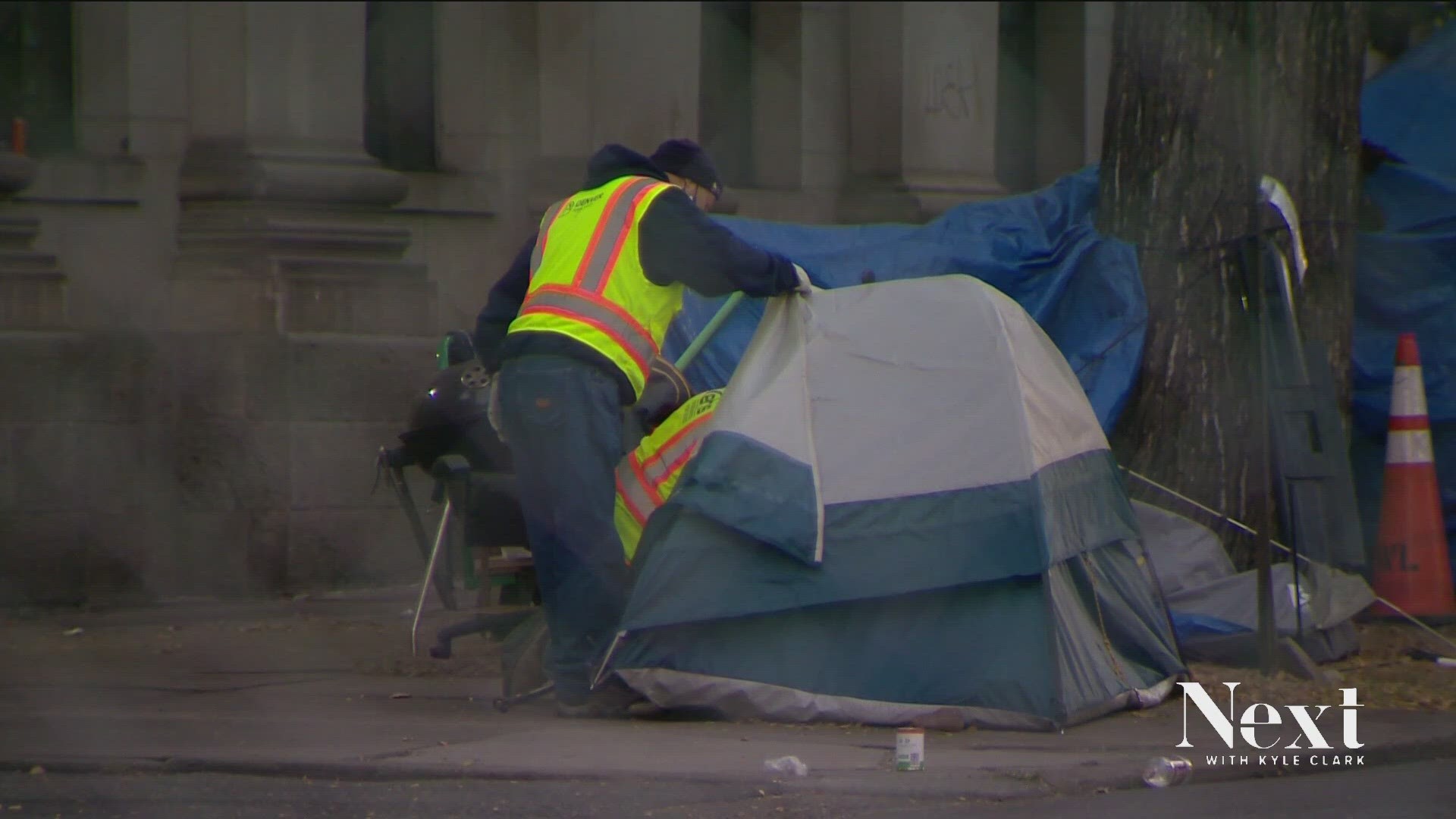COLORADO, USA — A new study shows involuntary displacement policies like homeless sweeps and camping bans could contribute to 15-25% of deaths of the unhoused population over 10 years.
Researchers at the University of Colorado Anschutz Medical Campus said practices like encampment sweeps, bans, move-along-orders and cleanups that force the unhoused to relocate away from essential services will "lead to substantial increases in overdose deaths, life threatening infections and hospitalizations."
CU-Anschutz partnered on the study with the Center for Disease Control and several other schools and organizations, using modeling data from 23 cities across the country.
By using city and national data to model what the real-life homeless population looks like in the chosen cities they ran two different scenarios over a 10-year period – one model with no displacement and the other with continual involuntary displacement.
In the hundreds of scenarios modeled, there were no situations in which these displacement policies provided a positive outcome for unhoused people who use drugs, according to the study.
Instead the study shows that displacement policies significantly increased the "morbidity, mortality and a shortened life expectancy."
“It’s estimated that more than 500,000 people are experiencing homelessness in the U.S., and understanding the toll practices such as camping bans and sweeps take on such a substantial population is critical to emphasizing the need for care and services versus literally being swept aside,” said Barocas, associate professor at the University of Colorado Anschutz Medical Campus and corresponding author.
He also noted that the research shows that the widespread practices of forcibly moving people is clearly impacting the health of the unhoused – especially when it comes to an increased overdose risk.
"So much so that it actually decreases the life expectancy of the entire population,” said Barocas.
Researchers also saw increased overdose deaths, hospitalizations, injection-related infections and more difficultly for the unhoused population to access medications for opioid disorder.
Barocas and his team said they hope the results from the study are able to inform future policies that will help lessen the long-term health consequences to the unhoused.
SUGGESTED VIDEOS: Latest from 9NEWS

